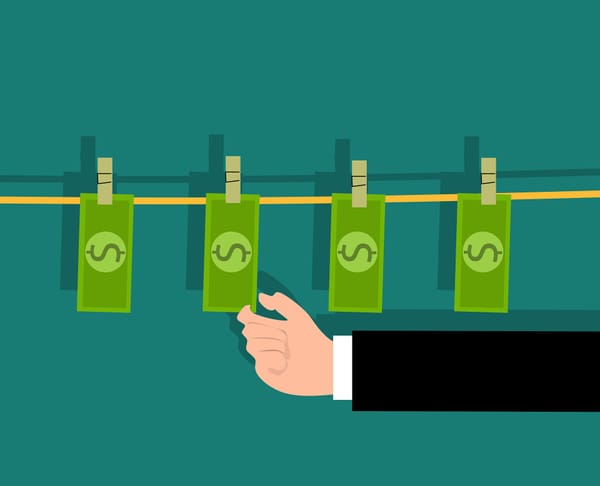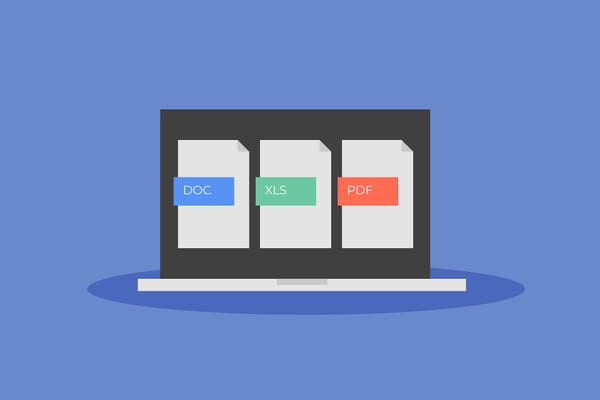New Client Scam Targeting a Therapist: "He Wanted to Pay for 32 Sessions Upfront. Something Felt Off…"

I came across Ryan King's post on Reddit while scrolling through a thread about scams. I was surprised to see scammers targeting therapists so directly — but not entirely shocked. Scammers always seem to find the weak spots – and very human- in any profession. And for freelancers and small business owners, that weak spot is often the same: the constant need for new clients, steady work, and well-paid projects.
Ryan was approached by someone claiming to be a father looking for therapy for his teenage son. The message was polite, detailed, and seemed genuine. He spoke to the son, verified some of the details, and learned that the father wanted to pay upfront for over 30 sessions using a cashier's check or money order — because he'd be going on vacation soon.
Ryan decided to refuse such a large upfront payment for ethical reasons and explained that payment is due at the time of each session. The scammers never responded. But even then, Ryan couldn't quite figure out how the scam worked — after all, he wasn't sending anyone money. What would have happened if he had accepted the sum?
That's exactly how new client scams work — they make it look like you're simply getting hired and paid for your work.
I asked Ryan a few follow-up questions about what happened, so you can see how this type of scam plays out, how to recognize the signs before it's too late — and help raise awareness among other therapists who might be facing the same risk.
How did "the client" first reach out to you?
While I do have a professional website for my private practice, many of my client requests come through 3rd party advertising sites that link clients with their ideal therapist. This one came through a site called Alma which I have a longstanding relationship with and has effectively referred approximately 60% of my current caseload to me. The first contact was incredibly strange. The contact form includes name, email, phone number, insurance, and message. The name was unsuspicious, but both the email and phone number listed were not active. My initial phone call could not be completed, and my follow-up email was bounced back to me. However, in the body of the message, the "client" re-wrote his email and phone number correctly. In other words, if the phone number in the contact box was 800-123-1234, the phone number written in the message box was 800-123-1235. It felt very intentional, and my best hunch is that it makes him less traceable. The contact form also indicated that the client was planning on paying out of pocket – this is not unusual.
Did the father or son mention a specific diagnosis or therapy goal?
Yes, I sent an initial email to the father after receiving the contact form in which the father responded, stating that his 19 year old son (in the contact form he stated his son was an adolescent) was experiencing negative symptoms following a tragedy. When I spoke to the son on the phone, he corroborated the story.
Can you walk me through your conversation with the "son"? Did anything feel off to you? Did they create any sense of urgency — for example, saying therapy needed to start immediately?
Many things felt off. First, the initial email from the father instantly made me think that I was not speaking to someone for whom English is a first language. My name is Ryan King but the father referred to me as "King". He immediately stated he was interested in 1:1 therapy then later restated it as one-on-one therapy. He also indicated that he wanted his son to attend 32 session twice a week – it is highly unusual for a client to dictate the length of treatment. He indicated a certain day that his son would be willing to start.
The strangest comment and the one that made me the most suspicious was stating that he would pay cashier's check or money order only. When I spoke to the son, he was driving, and he had a thick Latino accent, resulting in me only hearing about 50% of what he was saying. There was nothing in particular that seemed suspicious on the phone, but because I couldn't hear him, I told him I would send a follow-up email. I sent an email asking him to set up the client portal, sign the intake paperwork, and pick a session time. I also told him that cashier's check and money order would be fine but I clarified that payment is due at the time of session.
The son did sign the treatment consent forms but answered no questions on the intake form (he left them blank). After he was done, he texted me to say he was waiting to hear about the session time. I texted him back, saying that I listed session times in the previous email, and that he should respond to that. He texted me his answer and told me to send payment details to his father. I re-iterated that payment is due at the time of the session, and that is when he told me his father would be paying upfront since he is going on vacation soon (apparently, he said this on the phone, but again, I did not catch this). I told him that I do not take lump sum payments, and I haven't heard anything since from either the son or father.
How did they react when you said you don't accept large upfront payments?
I haven't heard from either person.
How did this experience make you feel — both as a therapist and as a small business owner? Has this changed anything about the way you screen or accept new clients?
I was mostly confused. I knew it smelled fishy but since I wasn't paying for anything, I was confused about how I would get scammed. That is why I posted on r/scams. While I don't think I would have taken a lump sum regardless (ethical reasons), the responses on the forum helped me understand how the scammer could hypothetically get money from me. I think now I just feel wary. I've started to spread the word to other therapists I know.
Have you put any new measures in place to help spot potential scams earlier?
Not really. I can't stop scammers from reaching out, and I'm certainly not going to remove my profile from these advertising sites. However, Alma does have an option to reject a client request due to scamming, so I may use that more liberally if I get another with similar red flags. At first I had considered taking cashier's check/money order but I think moving forward I would simply make that a hard no – anyone who wants to work with me must pay via cash or card.
The Anatomy of the New Client Scam
At first glance, a message like the one Ryan received seems like good news. A new client. A well-paid project. Someone ready to pay in advance. For any small business owner or freelancer — including therapists — that can feel like a win.
But that's exactly what scammers count on. These scams are carefully designed to seem like a normal client inquiry, while slowly pulling you into a trap.
Here's how the scam usually works:
- The scammer pretends to be a parent, caretaker, or someone booking services for another person
- They might say it's their child, partner, or even a friend who needs your help. They'll be polite and offer a story that sounds real — often involving a tragedy or emotional need to get your attention.
- They want to pay upfront — usually for many sessions, lessons, or projects.
That might sound like a dream client. But this is one of the first red flags. Legitimate clients almost never insist on paying for 10, 20, or 30 sessions in advance — especially if you've never worked together before.
4. They offer to pay by cashier's check or money order.
These forms of payment look trustworthy. But in scams, they're usually fake. Banks may even "clear" them at first, only to discover days or weeks later that they were counterfeit — and take the money back from your account.
5. They overpay, or something suddenly changes.
This is where it turns into a scam:
- They might "accidentally" pay too much and ask you to refund the extra.
- They may say they need you to pay someone else for them — like a driver or assistant — using the money they just sent you.
- Or they cancel the service after the first session and ask for a refund.
6. They request the refund via a non-refundable method.
They'll often ask you to refund the money through apps like Zelle, Cash App, Venmo or even gift cards — all methods that are hard or impossible to reverse once the money is sent. Meanwhile, the original check they gave you was fake.
How to Handle Scammers and Keep Your Business Safe
When a scammer approaches you, it's easy to feel caught off guard — especially if the message seems polite, detailed, and professional. But staying calm and clear-headed is your best defense.
Here's what to do to protect your business:
1. Trust your gut — and pause.
If something doesn't sit right, take a step back. A strange request, an unusual payment method, or even overly perfect behavior can all be signs that something's not right.
2. Stick to your payment policy — no exceptions.
Never accept large upfront payments by cashier's check, money order, or other untraceable methods. Make it clear that you only accept secure, verified payment types (like card or bank transfer) and that payment is due per session or project, not in bulk from strangers.
3. Never send money on behalf of a client.
This is the scammer's goal. Whether they want you to refund an "accidental" overpayment or pay someone else for them (like a driver, assistant, or vendor), always say no. It's not your job — and it's almost always a scam.
4. Watch out for urgency or pressure.
Scammers often create fake deadlines — someone is going on vacation, the sessions need to start right away, or you need to act fast. Don't rush. Real clients will respect your process and timelines.
5. Don't rely on what "clears" in your bank.
Even if a check or payment appears in your account, it doesn't mean the money is real. Banks sometimes release funds before verifying the check — and can reverse the deposit days later once it's flagged as fake.
6. Get a second opinion — from a person or a tool you trust
If you're unsure, don't decide alone. Ask a trusted colleague, a family member, or a friend what they think. You can also use a free tool like Scamio, Bitdefender's AI-powered scam detector, to check suspicious messages or emails. It can help you see red flags you might have missed — and give you peace of mind.
7. Report and block.
If you suspect someone is trying to scam you, report them to the platform where they found you (like Alma, LinkedIn, or Upwork), block their contact information, and warn others in your industry if possible.
This Scam Targets More Than Just Therapists
This type of scam doesn't just target therapists — it can happen to anyone who works independently or runs a small service-based business. In fact, it's becoming more and more common across all kinds of freelance professions.
Music teachers, for example, have reported being contacted by someone pretending to book lessons for their child, only to be asked to pay a "driver" out of the funds sent in advance.
Tutors, coaches, photographers, copywriters and designers have all come across similar situations: a potential client offers to pay upfront for multiple sessions or a big project, then suddenly cancels, overpays, or asks for part of the money to be forwarded elsewhere.
It's the same scam, just adjusted to fit different industries — and it's a clear reminder that anyone running a small business or looking for new clients can be a target.
That's why it's important to have security tools in place. If you work alone, Bitdefender Ultimate Security can help protect your devices, emails, and personal data. And if you run a small team with at least 3 members, Bitdefender Ultimate Small Business Security gives everyone coverage — with scam detection, phishing protection, and tools to help stop threats before they reach you.
tags
Author
Cristina is a freelance writer and a mother of two living in Denmark. Her 15 years experience in communication includes developing content for tv, online, mobile apps, and a chatbot.
View all postsRight now Top posts
How to Protect Your WhatsApp from Hackers and Scammers – 8 Key Settings and Best Practices
April 03, 2025
Outpacing Cyberthreats: Bitdefender Together with Scuderia Ferrari HP in 2025
March 12, 2025
Streamjacking Scams On YouTube Leverage CS2 Pro Player Championships to Defraud Gamers
February 20, 2025
How to Identify and Protect Yourself from Gaming Laptop Scams
February 11, 2025
FOLLOW US ON SOCIAL MEDIA
You might also like
Bookmarks






